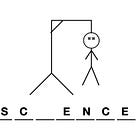Maestro Gattinoni knew it
Discovery: inductive vs deductive / Critical care commits a centuries-old mistake / Karl Popper deplores Petty and Bone / SARA and sepsis definitions are not even wrong
In this post:
Gattinoni was a well-read man
Knowledge production: inductive vs deductive
Critical care scientists (?) commit a centuries-old mistake
Karl Popper visits Petty and Bone - and he doesn't like what he sees
ARDS and sepsis definitions are not even wrong
Maestro Gattinoni got it right.
A few weeks ago I was searching the Critical Care Reviews website to find the results of the studies I have made predictions about. Of course, my predictions were spot on. My models for appraising critical care research stood another prospective test.
While wandering around the website, I found a video of Gattinnoni lecturing at a previous CCR meeting. He was explaining the basics of how science works. After the talk, the recently deceased Italian intensivist was opposed by Vincent, who drew the audience toward his absurd “abandon the RCT" proposition.
Gattinoni explained that particular empirical observations, taken as particular enunciates, could lead to the discovery of universal enunciates (conjectures, rules, laws, theories, etc). This move from the particular to the universal is called induction. For example, if for whatever reason I start dripping epinephrine and observe an increase in heart rate and arterial pressure, I may formulate a general law (and name it after myself).
Leite’s Law:
“Whenever a patient receives IV epinephrine his or her blood pressure and heart rate increase"
Gattinoni also taught that the opposite movement, i.e., from universal to particular, is called deduction. I may enunciate that:
Epinephrine is an alpha-adrenergic hormone
The alpha-adrenergic receptor causes arterial constriction
Arterial constriction causes hypertension, so
Epinephrine must cause hypertension when given to a patient
Then I would test it in a particular case and see whether the conjecture stands.
Let's come back to my inductive bedside experiment with epinephrine. Let's say I started with 0.1 mg and then increased the dose to 0.2 and 0.3 mg. I would observe a dose-related response. Fine. Now imagine I am so impatient that I decided to experiment with a 3 mg IV epinephrine bolus (unfortunately I witnessed this very adverse event in February 1998)1.
At this point, I'd suddenly realize the heart rate and arterial pressure dropped to zero as the patient's heart dived into ventricular fibrillation. What is left of my theory? How can I go on?
Ok, you physiology nerd… I know the arterial pressure with a non-beating heart is above zero. I am making an illustration here!
Please calm down. Gattinoni was only scratching the surface. We are going to a full dive into critical care epistemology. Things will get serious. ARDS and sepsis won’t be spared.
Keep reading with a 7-day free trial
Subscribe to The Thoughtful Intensivist to keep reading this post and get 7 days of free access to the full post archives.





